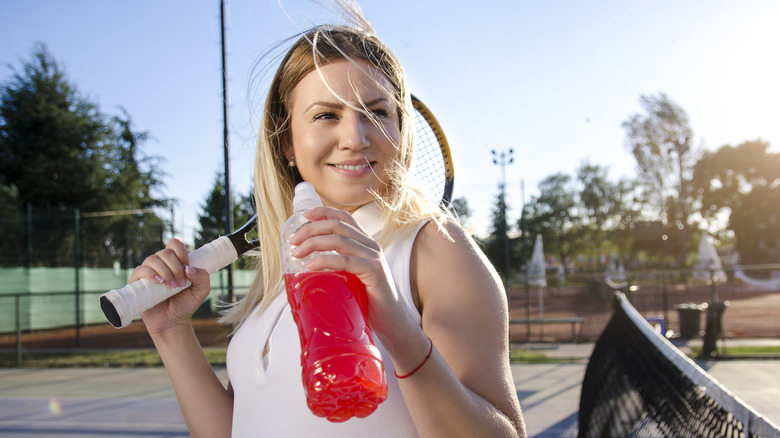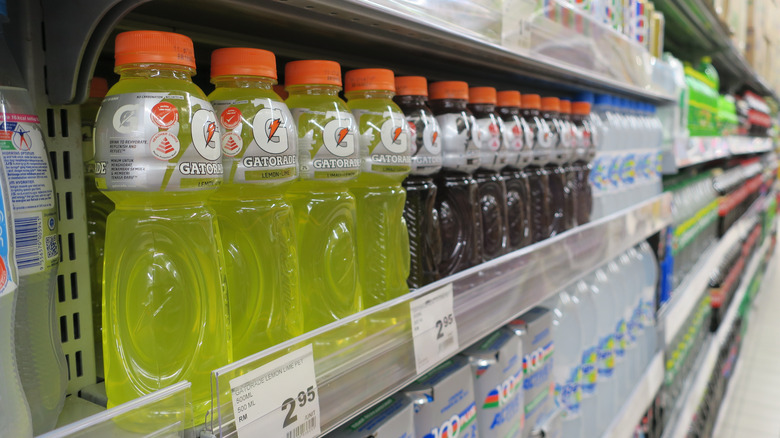Are Electrolyte Drinks Actually Good For You?
Sprinters, marathon runners, and other athletes swear by electrolyte drinks for better hydration and faster recovery. These beverages are popular among gym-goers, too, offering both flavor and nutrition. For example, Gatorade Thirst Quencher boasts 22 grams of carbs, 160 milligrams of sodium, 50 milligrams of potassium, and 80 calories per serving. Besides water, it contains sugar, dextrose, salt, citric acid, and additives, such as modified food starch and Red 40.
Electrolyte drinks, or sports drinks, are high in sodium, potassium, and fast-digesting carbs. Some also contain protein, vitamins, caffeine, and other ingredients that support athletic performance.
Carbohydrates, for instance, help replenish muscle glycogen stores and keep your energy up, says the United States Anti-Doping Agency (USADA). Electrolytes, on the other hand, support muscle and nerve function, regulate heart rate, and balance your fluid levels, explains Roswell Park.
Given these factors, it makes sense to sip on electrolyte drinks before, during, or after exercise — depending on your goals. For example, drinking electrolyte beverages post-workout can speed up recovery and improve your hydration status, according to Sports Dieticians Australia. What's more, these beverages can boost your energy when consumed before exercise or allow you to work out harder for longer when consumed during training.
However, things are not that simple. Sports beverages vary in quality from one brand to the next and may contain not-so-healthy ingredients.
Electrolyte drinks: Real help or marketing hype?
When you're working out, your body loses water and electrolytes through sweat. Generally, we lose significantly more sodium than other minerals, so sodium is important in an electrolyte drink, explains Coach. But even so, electrolyte beverages are not necessary unless your workout is vigorous and lasts 60 to 90 minutes or longer.
These drinks help replace the fluids and minerals lost during exercise, which may improve sports performance, notes a 2018 review featured in the journal Nutrients. But some of these beverages are high in citric acid, which can damage the tooth enamel, reports a 2016 meta-analysis published in Restorative Dentistry and Endodontics. Electrolyte drinks may also promote weight gain, warns Harvard T.H. Chan School of Public Health.
Yellow 5, Red 40, and other additives in sports beverages are a cause for concern, too. These dyes contain benzidine, a human carcinogen, according to a 2010 review presented in Environmental Health Perspectives.
For an electrolyte drink, your best bet is to reach for coconut water, bone broth, smoothies, or pickle juice, recommends Ochsner Health. For example, pickle juice is rich in sodium, potassium, and acetic acid, which may ease muscle cramps. However, Harvard T.H. Chan School of Public Health notes that water is generally the best choice of beverage.


